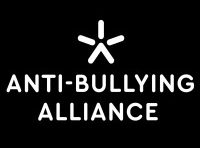As a result of the third national lockdown, government guidance to school’s has again been updated. A full copy of this guidance is available here: Actions for schools during the coronavirus outbreak – GOV.UK (www.gov.uk)
This guidance applies to all schools in England, including special, independent, and residential schools, but excludes maintained nursery schools and pre-reception classes.
There is separate guidance for Further Education Colleges: Actions for FE colleges and providers during the coronavirus outbreak – GOV.UK (www.gov.uk) this applies to sixth form colleges, general FE colleges, independent training providers, designated institutions, adult community learning providers and special post-16 institutions.
As we explained with earlier versions of the guidance, whilst it is not statutory guidance, it is expected that in these unprecedented times, schools, colleges and other places of education will follow the guidance in delivering educational provision.
Even though separate guidance has been issued for specialist Further Education settings, the same guidance applies to all schools.
Re-opening & Attendance
Pupils are not expected to return before February half term.
Currently, only pupils that fall into the limited categories of being vulnerable or the child of critical workers can continue to attend school. The category of ‘vulnerable’ has been broadened from previous guidance and now includes children:
- assessed as being in need under section 17 of the Children Act 1989, including children and young people who have a child in need plan, a child protection plan or who are a looked-after child with an EHCP
- identified as otherwise vulnerable by educational providers or local authorities (including children’s social care services), and who could therefore benefit from continued full-time attendance. This may include:
- children and young people on the edge of receiving support from children’s social care services or in the process of being referred to children’s services
- adopted children or children on a special guardianship order
- children at risk of becoming NEET (‘not in employment, education or training’)
- children living in temporary accommodation
- children that are young carers
- children that may have difficulty engaging with remote education at home, for example due to a lack of devices or quiet space to study,
- care leavers
- All pupils in special schools and special post 16 settings will fall into the vulnerable category, along with a high number of pupils in Alternative Provision, so the expectation is that these settings will remain open to deliver full-time face-to-face education.
The Guidance encourages the parents of vulnerable pupils to take up a place at school during the current lockdown, however it is equally clear that where a parent does not wish their child to attend during lockdown, then the absence should be authorised. Even in this situation, schools are expected to ensure that the welfare of the pupil is secure and that they can access appropriate education and support whilst at home.
The guidance identifies special school pupils and those attending alternative provision as needing to continue to provide face to face provision, where appropriate. So, special schools, special post-16 institutions and Alternative Provision should continue to offer face-to-face education to their pupils.
Special Educational Provision
Guidance for pupils with complex medical needs is here: Safe working in education, childcare and children’s social care settings, including the use of personal protective equipment (PPE) – GOV.UK (www.gov.uk)
As with previous lockdowns, the legal duties for children and young people with SEN still remain in place. Broadly, that is:
- Local Authorities to have regard to the SEN Code of Practice 2015
- Best endeavours duty to secure the special educational provision called for by the pupil’s SEN
- Equality Act 2010 duties on schools.
Practically, placements will have to make changes to the way they deliver education to ensure the environment is as safe as possible from the risk of coronavirus, but this needs to be compatible with their legal duties above.
Two key additions to the guidance are:
- risk assessments used in the previous national lockdown where schools restricted attendance should not be used to filter students in or out of attendance now.
- settings should not only ensure that appropriate support is made available for pupils with SEND, but that they can continue to deploy teaching assistants and enable specialist staff from both within and outside the school to work with pupils in different classes or year groups. Provision of Remote Education
The Department for Education has issued a direction; from 22 October 2020 most schools must provide remote education to pupils when children travelling to or attending school would be against Public Health England or Secretary of State guidance or the law relating to COVID-19.
The direction applies for the rest of the 2020-21 academic year and to children:
- of compulsory school age
- who are under compulsory school age but are usually taught in a class of children who are compulsory school age
- who are registered at schools in England which are fully state funded including independent schools named in EHCPs, pupil referral units and alternative provision academies.
This includes children who live in Scotland, Northern Ireland or Wales but attend school in England, and where travelling to or attending their school would be against guidance issued by a public authority for the country they live in.
The direction also means these schools must have regard to Department for Education guidance on remote education when they provide it.
The guidance states that schools should work with families to deliver an ambitious curriculum appropriate for the level of need of their pupils with SEND, bearing in mind that many of these pupils won’t be able to access remote education without adult support.
Special guidance has been produced for schools on getting help with delivering remote education: Get help with remote education – GOV.UK (www.gov.uk)
New information has also been made available for schools and local authorities to get support to secure IT and internet access for certain pupils: Get help with technology during coronavirus (COVID-19) – GOV.UK (www.gov.uk).





